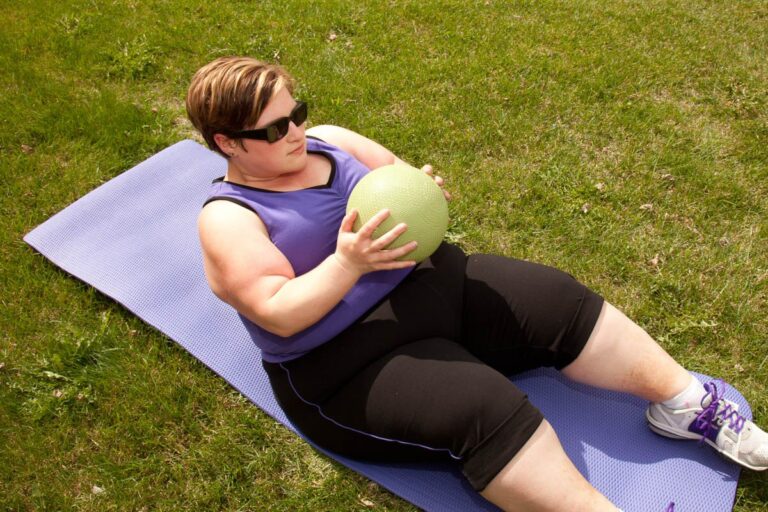Manage Your Weight
For health reasons, you might be trying to lose weight to reduce the risk of certain conditions, or to help with the management of existing medical conditions, such as type 2 diabetes, heart disease or sleep apnoea. If this applies to you and you would like to learn about ways of managing your weight, you’ll find helpful information in the ‘Learn’ and ‘Manage’ sections below.
If you are unsure if you need to lose weight, you may want to read the information in the ‘Self-Assess’ section first.

Learn

Managing Your Weight
There are lots of things that can contribute to changes in your weight, including some things that you did not choose and others that are linked to your everyday habits.
Self-Assess
What is a healthy weight for one person might not be ideal for another. However, it can be helpful to use a guide to assess whether our weight is within or close to a healthy range. To do this, we can use the Body Mass Index (BMI) as rough guide. There is a BMI calculator available on NHS UK
Please read the following information from NHS Inform for further guidance on BMI ranges
There are additional factors that can increase our risk of type 2 diabetes. Diabetes UK’s Know Your Risk calculator is a tool that can provide some guidance on this.
If we are already eating healthily and lead an active lifestyle, it might be better to maintain that lifestyle rather than trying to lose a lot of weight that we cannot maintain. However, if we know that we are not eating in a healthy, balanced way and it is realistic for us to make some changes, or that it is possible for us to build in more physical activity into our days, we might benefit from some guidance on how to do this. The information in the lifestyle changes page can help with this.
If you feel you need further support or have a more complicated relationship with food, please select the “Support” section below for further guidance.
Manage

Lifestyle Changes
Strict dieting is unsustainable for most people. Use this resource to consider how to make gradual and realistic changes to move towards a healthier lifestyle.

Physical Activity
Physical activity can be really helpful for improving our physical and mental health but it is not always easy to fit in the recommended amount or to find the right balance against other important areas of our lives.

Weight Management Webinars
A series of patient education webinars developed by NHS weight management and community dietetic teams to work through at your own pace. Includes videos on balanced eating, stress management and overcoming your inner critic.

Resources for Better Sleep
A list of resources to help you get better sleep: apps, websites, blogs, worksheets and books.

Tips on Managing Change in Our Lives
We all have to cope and manage with change in our lives for lots of reasons. Here are some tips and thoughts on navigating through a period of change.

Computerised Cognitive Behavioural Therapy
Cognitive Behavioural Therapy – CBT – is a psychological therapy based on the relationships between what we think, what we do and how we feel. CBT teaches you how to recognise and tackle problems in the here and now, rather than in the past.
Support
Healthy eating and weight management
There is some guidance in the Lifestyle Changes page and Weight Management Webinars on this website. If you want to focus on weight management and don’t feel able to work through the resources recommended on this website, you might want to ask your GP for a referral to your local weight management service. You can learn more about the NHS Lothian weight management service, including an option to self-refer. Depending on your circumstances, you might be offered support in the community or added to a list for assessment by a specialist dietitian. Unfortunately, there is a significant waiting time for an assessment so if you are able to focus on any of the suggestions below, that will place you in a stronger position to benefit from the service at the time of your appointment.
Our relationship with food
The relationship people have with food can be complicated. Everyone’s personal circumstances are different, and whilst focusing on a healthier lifestyle might be easy for some people, there are some situations where people may need more support first. If you’re finding that significant stressors, such as the care needs of loved ones, financial pressures, or your mental health are affecting your eating habits and lifestyle, getting support to problem solve those difficulties first is likely to be helpful for you so that any dietary changes are more likely to be realistic. You may wish to look through the other sections of this website, contact your GP, local social care service, or Citizens Advice Bureau.
In addition to our longer term relationship with food, family history and food environment, common factors that can lead to overeating or binge eating as an understandable coping strategy include:
- feeling deprived due to overly restrictive diets and/or irregular eating patterns
- poor sleep
- low mood
- stress and anxiety
- chronic pain
- difficulties coping with tricky emotions
- insufficient relaxation
- insufficient enjoyable activities / pleasure
- feeling overwhelmed by problems
- bereavement
- experiences of trauma
Comfort eating as a coping strategy for these and many other human challenges is not bad or wrong but may lead to complications with our health and wellbeing in the long term if it is our main or only coping strategy. And taking away our main coping strategy without finding helpful alternatives first is not a compassionate response to human suffering or a sustainable solution. This is why difficulties managing our weight are not just about healthy eating, exercise and willpower. It is also the reason a dietitian or psychologist might recommend not focusing on weight loss until you have made other changes. Focusing on regular eating without strict food rules and working through the resources that are relevant for you may equip you with more options for coping with the challenges you face in life and help you to practise meeting your needs in ways that don’t negatively affect your health. It does take time to get used to new skills and for these to become habits so please be patient with yourself.
NHS Greater Glasgow & Clyde has lots of helpful information about weight management, disordered eating and video based Psychology Education Talks for managing stress, overeating and self-criticism
The Centre for Clinical Interventions has a range of free self-help workbooks broken down into small modules, including ones for:
Some useful books
The Compassionate Mind Approach to Beating Overeating: Ken Goss
Overcoming Weight Problems: Grace and Gauntlett-Gilbert
Understanding Your Eating: How to Eat and Not Worry About It: Julia Buckroyd
50 Ways to Soothe Yourself Without Food: Susan Albers
Overcoming Binge Eating: Dr. Christopher G. Fairburn
The Weight Escape: Ann Bailey, Joseph Ciarrochi & Russ Harris
Living With Your Body & Other Things You Hate: Emily K. Sandoz & Troy DuFrene
End Emotional Eating: Jennifer Taitz
Weight-neutral movements
Association for Size Diversity and Health (promotes a Health at Every Size® approach)
I Weight Community (takes a body neutrality approach)
National Eating Disorders Association (tips for taking steps towards body neutrality)
Eating Disorders
Eating disorders do not only affect people who are underweight. If you think you might have an eating disorder, it is important to treat that before focusing on weight loss. If you’d like to follow a self-help approach, some of the books listed above might be helpful or this online free resource:
Centre of Clinical Interventions disordered eating materials
You might also want to consider whether support from the eating disorder charity, Beat, may be helpful to you. They have information about the different types of eating disorders and can sometimes provide guided self help sessions, including for binge eating difficulties.
There is some additional information in the eating problems page of this website, as well as further details about recognising an eating disorder on the main NHS Lothian website.
If you are unable to work through self-help materials or need further support from trained professionals and feel that an eating disorder is your main difficulty, please request a referral to the local eating disorders service from your GP. If you are already being treated within a mental health service or are on a waiting list for mental health treatment, we would recommend discussing your relationship with food and eating patterns within those sessions.













